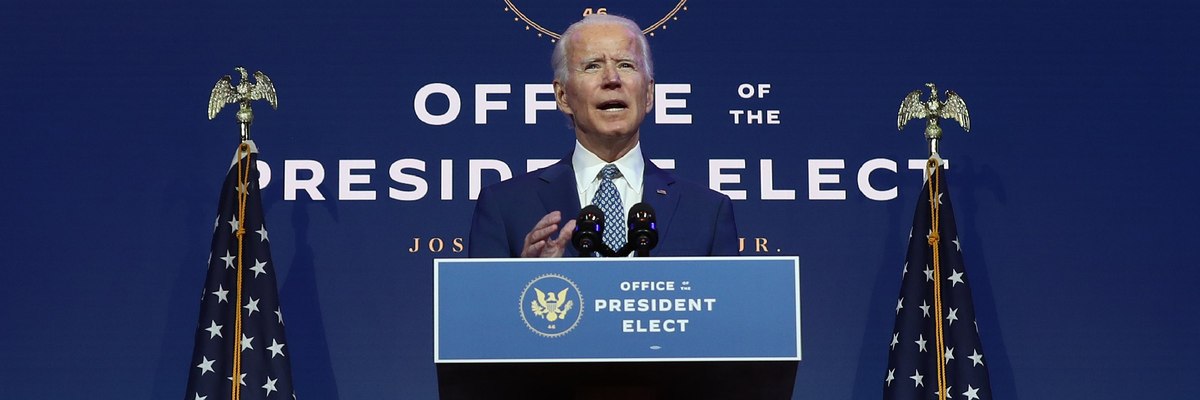This week, the General Services Administration provided President-Elect Joe Biden with the authorization to work with the current Administration on the transition – even though President Donald Trump has yet to admit an election loss and continues to raise legal challenges against the outcome. The latest Economist/YouGov Poll reflects the slow pace of the transition: like their President, most of those who voted for him reject the election results and the transition.
There has been little change in public in the last week (thought the poll was mostly completed before the GSA determination that an ascertainment letter should be sent to Biden). Only 15% of Trump voters view Biden as being legitimately elected. The rest, 85%, claim he did not legitimately win.
Most Trump voters don’t want to see the Administration cooperate with the President-Elect: they reject any concession from the incumbent President, don’t want the government to start transition activities or give the Biden team access to intelligence briefings. (Among all registered voters about two-thirds would like each of these things to happen now.)
There is one area where the President’s voters are willing to give Biden information: half believe that there needs to be cooperation between the two men’s coronavirus teams. Those Trump voters who see the pandemic getting worse support cooperation; those who don’t believe there is an increase in COVID-19 cases do not. Trump voters are closely divided on whether their own communities are experiencing increases in COVID-19 cases.
Joe Biden does have national credibility when it comes to handling the virus. Half (50%) have confidence in how he would deal with COVID-19, while 40% are uneasy about him when it comes to this. President Trump’s ratings on his handling of the pandemic have been consistently negative: this week 42% approve of how he is handling it, and 56% disapprove.
As for what will happen on January 20, when the next President will be inaugurated, Trump supporters aren’t at all sure Joe Biden will be taking the oath – or perhaps don’t want to admit it. Trump voters are as likely to believe Biden will not be inaugurated as to say he will, but four in ten claim not to be sure what will happen.
On this question, it makes a difference how a Trump voter feels about the man who defeated the President earlier this month. Only one in five of those who say they are “upset” about a Biden Presidency – 70% of all Trump voters – think or admit his inauguration will happen. Most of those who are not upset say it will. Many in both groups confess they aren’t sure.
Will there be a peaceful transition? There is a very close division on this question, and many supporters of both Biden and Trump aren’t sure it will happen. Half in each group believes the handover of power will take place peacefully, but the other half either doubts it will take place peacefully or aren’t sure.
The Biden Presidency will have to face significant opposition and doubt. Asked whether they are optimistic or pessimistic about the next four years with Joe Biden as President, 46% are optimistic and 43% are pessimistic, and the responses are directly related to whether or not someone voted for Biden or Trump. Four years ago, at the end of November, Americans also were split along voting lines. Then, 43% said they were optimistic, and 37% were pessimistic. In 2016, one in five weren’t sure what to expect. This year, only one in ten aren’t sure what to expect.
See the toplines and crosstabs from this week’s Economist/YouGov Poll
Methodology: The Economist survey was conducted by YouGov using a nationally representative sample of 1,500 registered voters interviewed online between November 21 - 24, 2020. This sample was weighted according to gender, age, race, and education based on the American Community Survey, conducted by the US Bureau of the Census, as well as 2016 Presidential vote, registration status, geographic region, and news interest. Respondents were selected from YouGov’s opt-in panel to be representative of all US citizens. The margin of error is approximately 3.2% for the overall sample.
Image: Getty









